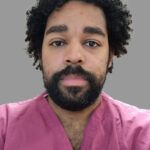Welcome to the second blog in this series, in which we explore the concept of intersectionality and its relevance to professionalism. Coined by Professor Kimberlé Crenshaw, an American civil rights advocate and leading scholar of critical race theory, intersectionality is a lens through which we can explore the gatekeeping effect of ‘professionalism’ on marginalised individuals whose identities exist at an intersection of power and oppression (Crenshaw, 1991).
All of the authors of this blog experience intersecting oppression to some degree. Mx Chui and Dr Stephenson-Allen reflect on the experiences of their intersecting identities of gender, sexuality and race in a surgical career. From this discussion, three core ideas emerged about how professionalism is performed and the cost of this performance.
What are the rules of that performance?
As we discussed in the first blog of this series, the rules of professionalism are unwritten and deeply coded into ideas of social capital (Bourdieu, 1986). To help frame our reflection we drew on the work of Goffman (1959) and discussed professionalism as a type of performance; complete with rules, actors and an audience. We found this a useful way to think about the different social dynamics at play in professional spaces, and how personal identities might intersect with preconceptions of a surgeon. There are also comparisons to be made with fields of feminist and queer theory, especially Judith Butler’s work (1990, 2004) on how gender is part of a complex negotiation with the world around us; performed through our own behaviours and modes of dress, but also by the way these are interpreted by society.
To examine this further, Mx Chui shares their experience as a genderqueer person in surgery* and describes feeling the need to tailor their wardrobe in order to ‘fit in’ and be “taken seriously in clinic”. They felt a need to conform to masculine styling, neutral colours, and highly regulating their energetic forms of expression to be ‘professional’. To perform to what colleagues and patients perceive a surgeon looks and acts like, parts of their identity are suppressed. We can see echoes of this in the literature, as cisgendered male, white and heteronormative ideals are implicitly reinforced via the overregulation of undergraduate school dress codes on marginalised students (Ruzycki et al 2023), queer students reporting a pressure to conform to certain styles of presentation for fear of “professional” consequences (Helppi and Pliener 2021, Brower 2023), and even steering career choices (Malik et al 2019).
This socialized reinforcement can create an almost unshakable prejudice. Dr Stephenson-Allen reflects on a case where despite introducing himself, taking consent and performing surgery, a patient still asked in recovery:
“When am I going to meet the surgeon?”
It was later revealed they had assumed him to be a porter due to the uniform of scrubs. This leads to the question of whether Dr Stephenson-Allen must adapt the rules of his performance to gain patient trust. Whilst many might try to justify this incident, it is undoubtedly rooted in racist bias. As a Black man, would greater adherence to the white male surgeon stereotype be more professional? Perhaps one should avoid the suggested ambiguity of scrubs, avoid natural Afro hair styles, and wear a suit and tie for acceptance and recognition?
Who are we “performing” professionalism for?
As described in the first blog of this series, the answer to this is not simply “the patient”. Both our authors discussed that when working alongside a less experienced surgeon, often seniority and attention is gifted by patients and colleagues to those most proximal to the archetype of a cisgendered, heterosexual, white man. As a result, our authors’ presence and legitimacy becomes challenged by patients and colleagues in ways unrelated to surgical skill. Before any knowledge is demonstrated, their capability and position is assumed to be less, and excludes them from the possible identity of an experienced surgeon
Audience and risk may also change the rules of the performance. Dr Stephenson-Allen reflects that in white dominated spaces assertiveness as a Black surgeon is all too often perceived and reported as aggression. However, in moments of conflict accentuating his queerness (feminising mannerisms/turns of phrase/voice) can serve to shift perceptions from ‘aggressive’ to ‘sassy’, defusing otherwise tense interactions. Whilst effective, this leaves him with the bigger question:
“Does this come at the cost of my broader credibility as a surgeon?”.
What is the cost?
This brings us to the question of cost. Both surgeons describe a significant personal cost to navigating their intersecting identities in the surgical profession, as they seek to understand what makes them appear more palatable and credible to their audience. This idea of “minority tax” is not new in healthcare (González 2022), and generates significant fatigue for marginalised staff.
However, broader system-wide costs also warrant further consideration. Despite a strong belief in their own skills, both surgical authors have to justify surgical legitimacy. This results in subsequent delays to patient care when compared with cisgendered, heterosexual, white male counterparts who experience fewer barriers in their performance of professionalism. Examples include: over-explaining the need for a scan, reasserting expertise when roles are assigned to less experienced colleagues, and patient’s reluctance to accept decisions without the additional opinion of someone who fits their perception of a surgeon. This is no reflection on the skills of Mx Chui and Dr Stephenson-Allen, but is the result of a narrow social framework we have created which dictates who is and is not seen as a legitimate surgeon.
The personal, dehumanising cost of these performances should be enough to invoke change. However, in a healthcare system that has failed to value individual staff experiences, is demonstrating an impact on patient care needed to motivate change?
Conclusion
Both of these surgeons are experienced, capable and hold a strong belief in their demonstrated professional competency. They have proven to themselves they are enough – and yet something proximal to imposter syndrome is experienced when their personal identities are seen by patients and colleagues as lying in conflict with preconceptions of how a surgeon looks or acts. Navigating the intersections of multiple identities is not without cost to the individual, and to the system in which they work. We conclude with a final quote:
“What has been revolutionary for me has been the combination of finding some excellent queer surgical role models, as well as coming into my own as a junior surgeon. Increasingly I care less about maintaining the things that help me fit in. There is space for me here. I’ll make sure of it.”
We must ask ourselves, should our colleagues have to battle for that space alone?
Glossary
*a genderqueer person is someone who’s gender identity (their innate, internal perception of their gender) does not align with society’s binary constructs of male and female. Understand more about LGBTQ+ terminology via Stonewall.
For readers in surgical careers who identify as LGBTQ+ please check out the Royal College of Surgeons Pride in Surgery Forum (PRiSM)
‘As a Black man, would greater adherence to the white male surgeon stereotype to be more professional be appropriate? Perhaps one should avoid the suggested ambiguity of scrubs, avoid afro hair styles, and wear a suit and tie to gain acceptance or recognition?’
Authors

Jo Hartland
Dr Jo Hartland (they/them) is a Senior Lecturer and the Deputy Education Director at Bristol Medical School. Their teaching focuses on the causes of health inequity, bias in healthcare, and ensuring the inclusion of marginalized people in health curriculum. Their research interests are in marginalised students experiences, and decolonising health education. Externally they sit on the Executive Board of the Medical Schools Council EDI Alliance, and are an independent queer activist. They are the lead author of The Association of LGBTQ+ Doctors and Dentists (GLADD) Medical School Charter on so-called LGBTQ+ Conversion Therapy


Dr Xander Stephenson-Allen (he/him), London North West University Healthcare Trust.
Xander is a locally engaged Urology Registrar in London, and the Diversity, Equality and Inclusion Lead for the Pride In Surgery Forum (PRiSM), of which he is a founding member. Xander is a queer Black man, and having had career in LGBTQ+ advocacy prior to medicine he continues use these skills to cultivate a culture in surgery which allows LGBTQ+ staff and patients to thrive. Xander’s main areas of interest are LGBTQ+ representation in Medical Education (in particular postgraduate urological training), the experiences of LGBTQ+ in seeking urological care, and psychosexual medicine as it intersects with Urology. Xander continues to hopes that by being an out and visible queer surgeon that LGBTQ+ aspiring surgeons are reassured that there is indeed a place in surgery for them.
Declaration of interests
We have read and understood the BMJ Group policy on declaration of interests and declare the following interests: None